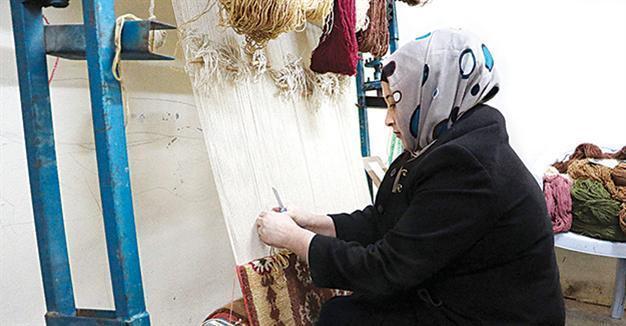Turkish gov’t says citizens’ employment will not be hampered by work permits for Syrians
ANKARA

AA Photo
Deputy Prime Minister Numan Kurtulmuş has revealed the details of the Turkish government’s plan offering work permits to Syrian refugees, pledging that the arrangement would not lead to limiting the employment of Turkish citizens.The “draft” regulation has been adopted by a council of ministers and will be published in the coming days, Kurtulmuş told reporters at a press conference held late on Jan. 11 while the council of ministers were still holding a cabinet meeting chaired by Prime Minister Ahmet Davutoğlu.
Employers will be able have Syrians comprise up to 10 percent of their staff, although this condition may be waived by provincial governors in certain cases.
“The work permit granted to Syrians is not a field that would restrain employment of Turkish citizens. Foreigners who are provided temporary protection will be able to apply for work permit six months after date of their temporary identity cards arrangement,” Kurtulmuş said, noting that these work permits would be valid in provinces where the workers reside or where their temporary identity cards were issued by the Interior Ministry.
Since the Syrian conflict began in 2011, around 2.41 million Syrians have fled to Turkey, and with a regulation governing temporary protection, 7,351 Syrians have been granted work permits, Kurtulmuş said.
Refugees under temporary protection can work within the refugee community in Turkey, for example, as doctors or teachers in camps.
In regards to the 10 percent quota, however, there will be an exception.
“In work places where there has been a [employment] deficit in the four weeks within an application being considered, it will be possible to exceed the 10 percent. Additionally, for Syrian refugees who work as agricultural workers or who has and will work in agriculture and livestock, permits will be taken from the governorates apart from this quota implementation and their employment within this framework will be ensured. The governorates will be able to stretch this quota according to needs of provinces if they want,” Kurtulmuş said.
There will be no limitation based on age, gender and sector in the employment of Syrians, he added in response to a question. “It is obvious that they will of course be employed more in fields where there is need.”
Earlier on Jan. 11, speaking to reporters after a meeting with visiting European Commission Vice-President Frans Timmermans, Turkey’s EU Minister Volkan Bozkır said Turkey planned to offer Syrian refugees work permits to discourage them from illegally travelling to the EU.
“We are trying to reduce the pressure for illegal migration by giving Syrians in Turkish work permits,” Bozkır said.
Timmermans last week said the European Union was far from satisfied with Turkey’s efforts to prevent migrants from crossing the Aegean Sea to Greece.
Turkish authorities detained more than 150,000 illegal migrants in 2015, or about 500 migrants daily, Bozkır also said.
Turkey is the world’s biggest host of refugees amid the greatest global movement of refugees ever recorded.
More than 2.2 million Syrians have sought refuge in Turkey from the civil war, now in its sixth year. Another 200,000 Iraqi refugees also shelter there, and migrants from Iran, Afghanistan and Africa all use Turkey as a transit point to Europe.
Turkey, which aspires to join the EU, struck a deal with the bloc in November 2015 to prevent migrants from travelling to Europe in return for 3 billion euros in cash, a deal on visas and renewed talks on joining the 28-nation bloc.
















